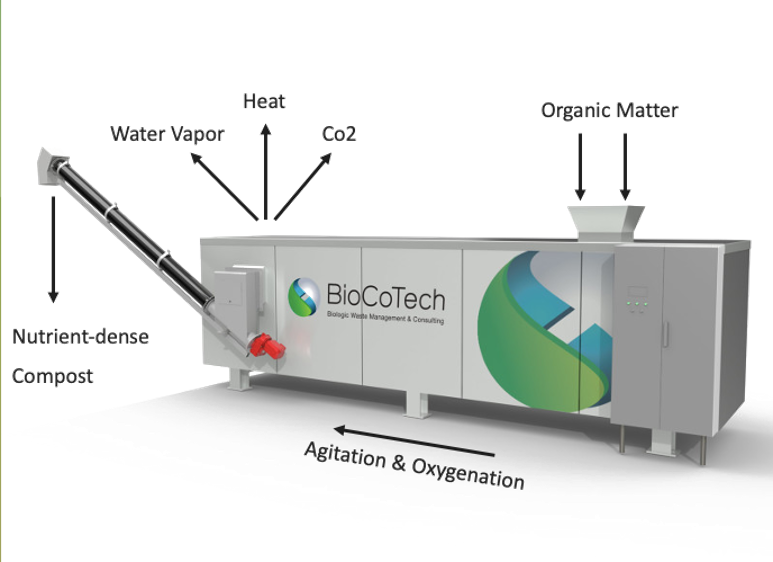Food waste is an enormous environmental, social and economic problem. The issue at hand has as much to do with the need for innovation but also for regulatory-induced alignment of incentives.
This week, Tanner Farrow, the Director of Operations of BioCoTech Americas, discussed what he is working on. BioCoTech Americas’ mission is to create value within the waste management system by allowing businesses to effortlessly process organic waste on-site. Below are the key takeaways from the conversation.
Why does this matter?
- According to Project Drawdown, tackling food waste is one of the top solutions, as rotting food produces harmful methane gas.
- Experts suggest that addressing Short-term Lived Climate Pollutants (SLCPs) offers the best chance at mitigating climate change. SLCPs, like methane, have upwards of 30X the climate change potential than that of CO2.
- Initiatives and legislation are being enacted around the world to reduce food waste, however inedible organic waste is inevitable and must be disposed of in a sustainable manner.
- In the United States organic waste landfill bans and zero-waste initiatives are going mainstream. Much of the legislation enforcement, which will come in the form of substantial monetary penalties, already has or will become effective within a short time frame. As a result, the demand for organic recycling facilities outweighs the capacity of the infrastructure.
- Due to the lack of infrastructure, many entities will be unable to comply with legislation. If businesses can comply, they will incur an organic waste hauling expense that tends to be larger expense than landfilling.
- BioCoTech Americas is innovating to bring their easy-to-use technology to where the waste is produced. Because each component of the decomposition process is meticulously managed by the machine, their technology requires virtually no user input in the compost processes – the process is as simple as taking out the trash.
What’s next?
- BioCoTech Americas will enable businesses to meet and comply with new legislation and strive towards zero-waste goals.
- As a result, implementing their technology will eliminate organic waste collection expenses and eliminate GHG from transportation and off-site treatment. Depending on regional waste hauling tipping fees and ancillary costs, their clients typically break-even quickly, receive healthy ROIs, and save thousands and even millions of dollars over 10 years.
- The end product is no longer considered waste by law or application, but rather a valuable compost resource that can be used on-site, donated to local gardens, schools, or farms, and even sold.
- BioCoTech Americas’ BioSpeed technology has gained traction and has deployed in multiple countries in Europe, the Middle East, Canada, and the United States.
Future Outlook
Governments, industries, and businesses across all sectors are on the fast track towards creating a Circular Economy. With the rise of urban gardens, hydroponics, cultured meat, aquaponics, and so on, BioCoTech Americas envisions a decentralized food supply system – organic waste can easily be recycled with their technology and nutrient-rich compost can be used locally to grow food.
About The Author

Daniel currently works at Lawrence Livermore National Laboratory as a Product Manager. Outside of his day job, he is a Principal at C3, Tech Scout at For ClimateTech, and Venture Scout at Prithvi. He also works with various climate incubators/accelerators (Cleantech Open, Techstars, and Joules Accelerator) and runs The Impact and Innovate Climate – both are newsletters covering startups in the climate space.

